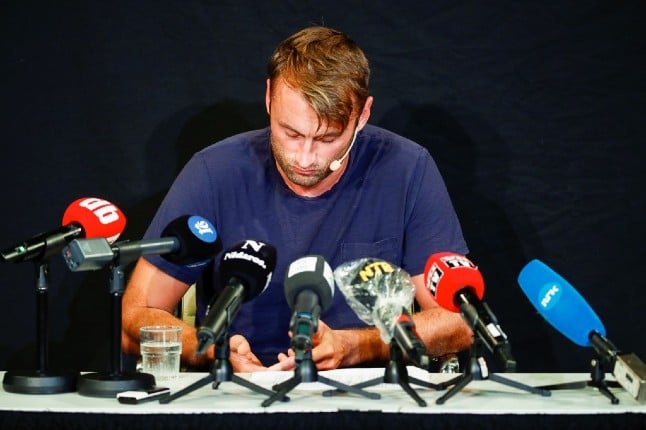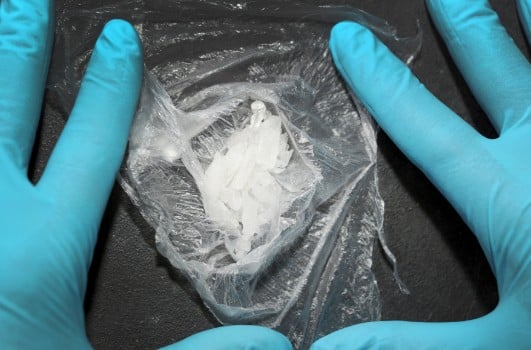COCAINE
Norway ski star admits drug problems after cocaine bust
Following a speeding offence which led to a house search that found cocaine, former Norwegian cross-country ski star Petter Northug, said on Friday he had a "serious problem" with alcohol and drugs.
Published: 22 August 2020 08:17 CEST

Petter Northug admits 'serious problems' at a press conference on Friday. Photo: Terje Pedersen / NTB Scanpix / AFP
Police clocked Northug at 168 kilometres per hour (105mph) at the wheel of his Jaguar near Oslo on August 13.
Suspecting that he was driving under the influence – the tests have not yet been processed – police searched Northug's home and found the cocaine.
“I have a serious problem with alcohol, drugs and medication in connection with, at times, big parties and there have been a lot of parties,” the 34-year-old told a press conference.
Apologising “to all concerned”, he said he was “ready to accept the sentence”, after he is tried.
In 2014, Northug was jailed for 50 days, a sentence mostly served with an electronic bracelet, fined and banned from driving for five years, after crashing while driving under the influence.
On Friday, he said the alcohol and drug problems began after his retirement from sport in 2018. He said he has sought professional help.
Among the best cross-country skiers in history, Northug won four Olympic medals, all in 2010 and including two golds. He collected 13 World Championship golds between 2007 and 2015 and won three World Cup globes, including two as overall champion.
Url copied to clipboard!


 Please whitelist us to continue reading.
Please whitelist us to continue reading.
Member comments